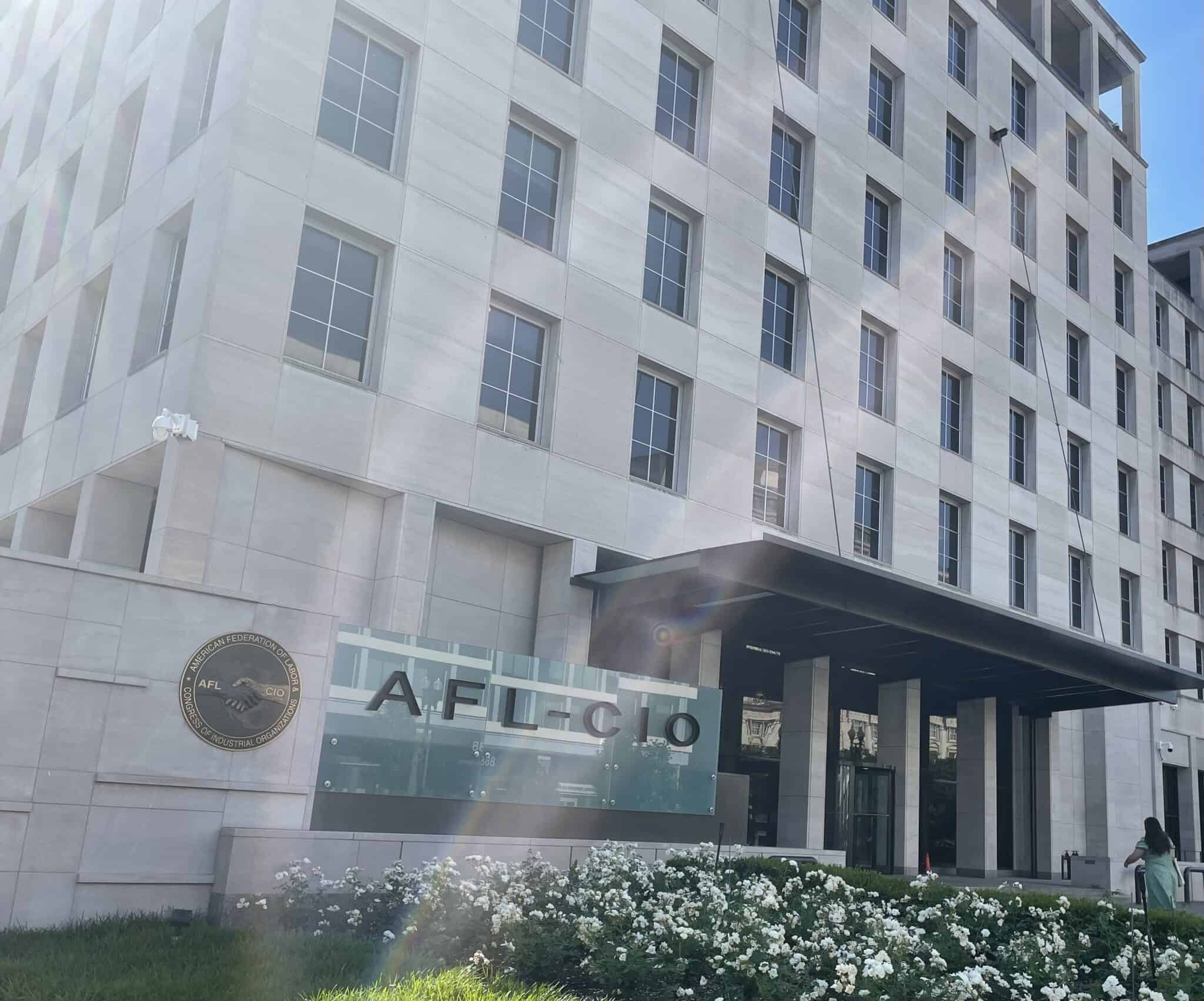
Jason Vazquez is a staff attorney at the International Brotherhood of Teamsters. He graduated from Harvard Law School in 2023. His writing on this blog reflects his personal views and should not be attributed to the IBT.
The AFL-CIO, the county’s largest federation of labor unions, held its 29th Constitutional Convention in Philadelphia earlier this week. The quadrennial gathering supplies a democratic forum in which delegates representing the Federation’s dozens of affiliated unions, as well as the more than thirteen million employees for whom they bargain, convene to give speeches, elect leadership, adopt constitutional amendments, and pass resolutions designed to shape the future of the labor movement. President Joe Biden was in attendance yesterday, and he delivered an inspiring speech from the stage in Philly. Recognizing that “without unions, there would be no middle class,” the President reaffirmed his commitment to serving as “the most pro-union president in history.” Moreover, he denounced the greed of the billionaire class, urged Congress to pass the PRO Act, and insisted that he has “never been more optimistic about America than [he is] today.” “We’re not going back to the false promises of trickle-down economics,” Biden assured the audience. Rather, “we’re going forward”—and “unions are going to play a critical role in that future.”
In other Convention updates, Liz Shuler was formally elected president of the Federation, an office she has been occupying in an acting capacity since Richard Trumka’s death last summer. Taking the stage after the election results, Shuler remarked in a moving speech that the labor movement is “the single most powerful and hopeful movement for progress in this country.” She characterized this moment as a “defining” one for organized labor, given that “the wealthy have concentrated power and profit away from working people” and “upward mobility . . . has been reversed.” Yet the labor movement, she proclaimed, is “on the brink of something big,” for “working people are rising” and “turning to unions as a solution to their problems.”
On the East Coast, the Supreme Judicial Court of Massachusetts rejected a high-profile statewide ballot initiative bankrolled by major gig platforms, which would have cemented the status of app-based workers in the commonwealth as independent contractors rather than employees. Doing so would deprive hundreds of thousands of Massachusetts workers of the workplace protections to which employees are entitled under state and federal law, including, for example, such fundamental rights as a minimum wage, overtime premium, and joining a union. In short, the ballot initiative represented the Massachusetts version of California’s Prop. 22, and it was set to appear on a statewide ballot this fall had that possibility not been foreclosed by the SJC.
A coalition of labor groups challenged the proposed ballot measure in court, and the litigation ultimately ended up before the commonwealth’s highest tribunal. The SJC’s ruling, which blocked the proposal, largely rested on procedural grounds. The court held that the proposed initiative would have asked voters to make “two substantively distinct policy decisions”—first, whether to classify gig drivers as independent contractors, and second, whether to limit tech firms’ tort liability with respect to drivers’ negligence. This, the court explained, contravenes the Massachusetts Constitution, which dictates that ballot initiatives must contain only one discrete issue. “When even lawyers and judges cannot be sure of the meaning of the contested provisions,” remarked Justice Kafker, “it would be unfaithful to [the state constitution’s] design to allow the petition to be presented to the voters, with all the attendant risks that voters will be confused and misled.”
In Amazon Labor Union news, a post-election NLRB hearing in which Amazon seeks to undo the ALU’s stunning Staten Island victory began on Monday. Amazon filed dozens of objections to the election alleging that the ALU as well as Region 29, which administered it, engaged in improper conduct that “destroyed the laboratory conditions necessary for a free and fair election.” The contested conduct includes, for example, intimidating employees and improperly distributing marijuana. The hearing will be conducted remotely from 10 a.m. to 6 p.m. EST for the rest of the week and likely several more to come. It can be viewed here.






Daily News & Commentary
Start your day with our roundup of the latest labor developments. See all
July 11
Regional director orders election without Board quorum; 9th Circuit pauses injunction on Executive Order; Driverless car legislation in Massachusetts
July 10
Wisconsin Supreme Court holds UW Health nurses are not covered by Wisconsin’s Labor Peace Act; a district judge denies the request to stay an injunction pending appeal; the NFLPA appeals an arbitration decision.
July 9
In Today’s News and Commentary, the Supreme Court green-lights mass firings of federal workers, the Agricultural Secretary suggests Medicaid recipients can replace deported farm workers, and DHS ends Temporary Protected Status for Hondurans and Nicaraguans. In an 8-1 emergency docket decision released yesterday afternoon, the Supreme Court lifted an injunction by U.S. District Judge Susan […]
July 8
In today’s news and commentary, Apple wins at the Fifth Circuit against the NLRB, Florida enacts a noncompete-friendly law, and complications with the No Tax on Tips in the Big Beautiful Bill. Apple won an appeal overturning a National Labor Relations Board (NLRB) decision that the company violated labor law by coercively questioning an employee […]
July 7
LA economy deals with fallout from ICE raids; a new appeal challenges the NCAA antitrust settlement; and the EPA places dissenting employees on leave.
July 6
Municipal workers in Philadelphia continue to strike; Zohran Mamdani collects union endorsements; UFCW grocery workers in California and Colorado reach tentative agreements.